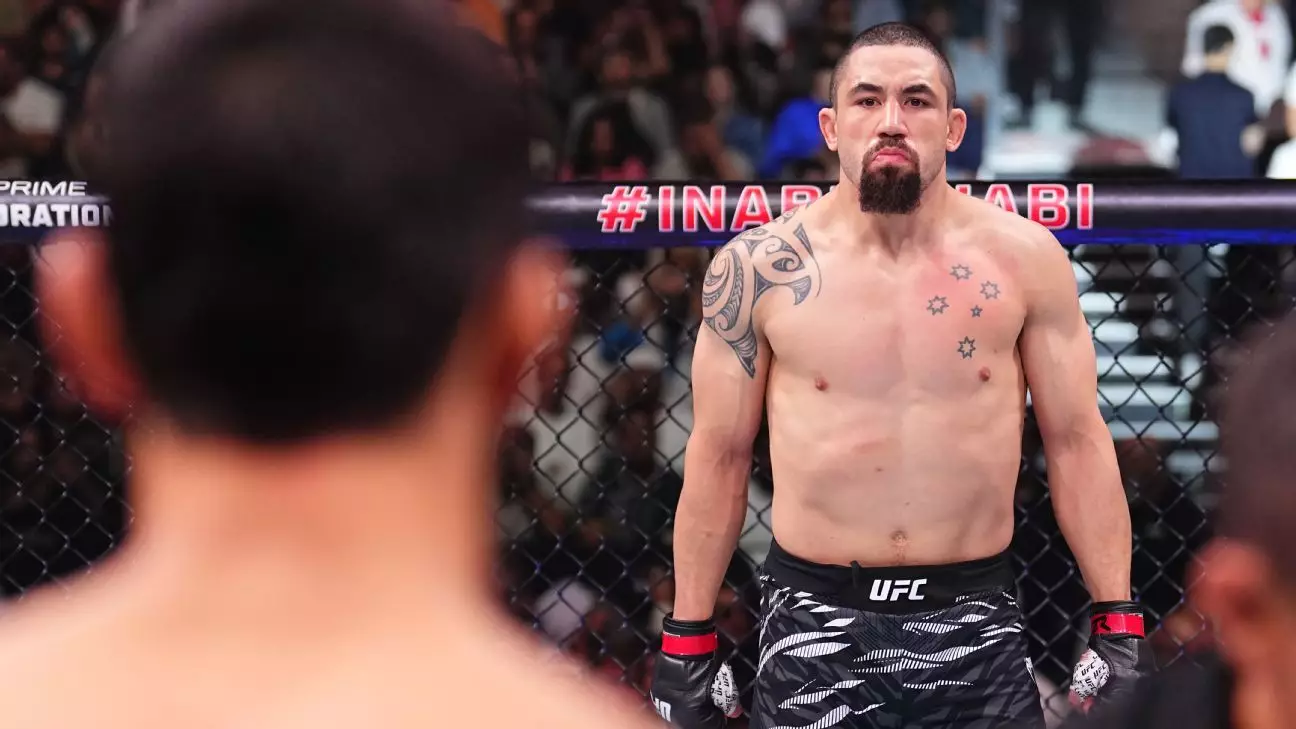As the UFC gears up for its inaugural 2025 fight card in Abu Dhabi, the event symbolizes more than just a set of bouts; it marks a pivotal movement in the organization’s global expansion. Abu Dhabi, with its state-of-the-art Etihad Arena, stands as a beacon of international sports prestige, and UFC’s decision to host two events there in one year underscores its commitment to cultivating a worldwide MMA culture. This strategic move not only enhances the UFC’s brand visibility but also signifies a paradigm shift toward embracing diverse martial arts ecosystems. The excitement is palpable, yet it also invites a critical lens: Is this merely a lucrative venture, or are we witnessing a genuine effort to elevate MMA’s competitive landscape on a global scale?
The event’s location is a calculated choice—highlighting Abu Dhabi’s growing influence and the UFC’s dedication to expanding beyond traditional Western markets. This year’s fight card promises to showcase talent that bridges regional styles and global competition, potentially setting the stage for future international contenders to ascend. But beneath the grandeur, one must question whether this move will truly foster elevating high-caliber matchups or simply serve as a lucrative spectacle for regional audiences.
Main Event Spotlight: A Clash of Experience and Rising Talent
At the core of this event stands a compelling contest between Robert Whittaker and Reinier de Ridder—an intriguing juxtaposition of legendary experience versus unproven rising prowess. Whittaker, a former UFC middleweight champion, epitomizes resilience and technical mastery. His recent loss at UFC 308 was a wake-up call that truly exposes the vulnerabilities of even the most seasoned fighters. His challenge now is whether he can turn the tide against an opponent with a different set of skills—that of de Ridder, an undefeated former two-division champion in One Championship.
De Ridder’s undefeated streak intrigues but also raises a question: Can a fighter with limited exposure to UFC-level competition truly measure up against a well-rounded, battle-hardened veteran like Whittaker? His grappling skill is undeniable, but the transition to UFC’s high-caliber opponents remains a significant hurdle. The discourse often revolves around physical attributes—de Ridder’s size and aggressive pressure versus Whittaker’s quintessential striking and defensive acumen. Yet, the crux of this battle may hinge on whether de Ridder can impose his grappling game without being deterred by Whittaker’s striking and stamina, especially across five rounds.
This matchup isn’t simply about who is better; it’s about who can adapt and demonstrate resilience in unfamiliar territory. Whittaker, having faced formidable opponents in the past, has the edge in experience fighting through adversity, which could be decisive if de Ridder’s aggressive tactics falter. Ultimately, the fight serves as a crucible for both competitors to prove whether raw potential or seasoned mastery will come out on top.
Evaluating Fight Strategies and Implications for Future Matchups
A deeper look into the tactical nuances reveals that the outcome may heavily depend on the fighters’ game plans and adaptability. Whittaker’s style is rooted in counter-striking and timing, with a proven ability to weather storms and capitalize on opponents’ mistakes. That gives him an edge in handling de Ridder’s physical pressure. Conversely, de Ridder’s approach centers around relentless grappling, aggressive pressure, and seeking to dominate positions on the ground or threaten submissions.
The critical factor is whether de Ridder can implement takedowns and maintain top control without allowing Whittaker’s striking to establish dominance. If Whittaker keeps the fight upright, his striking advantage is likely to shine, and his experience in championship rounds could become a decisive factor. The betting odds and expert predictions lean towards Whittaker, reflecting a consensus that skill, experience, and fight intelligence favor the former champion.
This matchup also has broader implications. A victory for de Ridder could catapult him into the upper echelons of middleweight contention. For Whittaker, it’s an opportunity to reassert himself after setbacks, demonstrating resilience and the ability to adapt. The fight acts as a bridge, connecting the old guard of the division with the promising newcomers—an authentic indicator of how MMA’s landscape evolves.
The Potential Impact on MMA’s Competitive Future
This event is not just about immediate outcomes; it reflects a larger debate about the evolution of MMA and how fighters with contrasting backgrounds and skill sets will shape the division’s future. A dominant win by Whittaker could reinforce the importance of experience and well-rounded striking. Conversely, if de Ridder pulls off an upset, it may signal that aggressive grappling and physicality can succeed against seasoned standouts, possibly inspiring more fighters to embrace multifaceted strategies.
Looking beyond this specific bout, Abu Dhabi’s role as a fresh battleground underscores the sport’s desire to globalize its appeal. The UFC’s investment in showcasing regional talent alongside top-ranked opponents will inevitably influence training methodologies and fighting styles worldwide. It’s a strategic gamble—will these bouts foster more high-quality matchups or remain as spectacles with limited long-term ramifications?
Engagement from analysts, bettors, and fans reveals a collective curiosity about how this event might redefine standards. Will fighters evolve to meet the demanding mixture of styles, or will this event merely serve as a proving ground for established names versus untested prospects? The answers lie in how these fighters perform under pressure and how the UFC leverages these moments to elevate the sport’s technical benchmark.
While the immediate focus is on the fight card’s results, the broader implications resonate through the future of MMA. UFC’s strategic positioning in Abu Dhabi symbolizes a bold step toward a more interconnected, dynamic, and competitively rich sport—one where potential is unleashed through the crucible of international competition. Whether this step proves transformative or merely transitional depends on the fighters’ performances and the organization’s ability to harness the global passion that MMA ignites.

